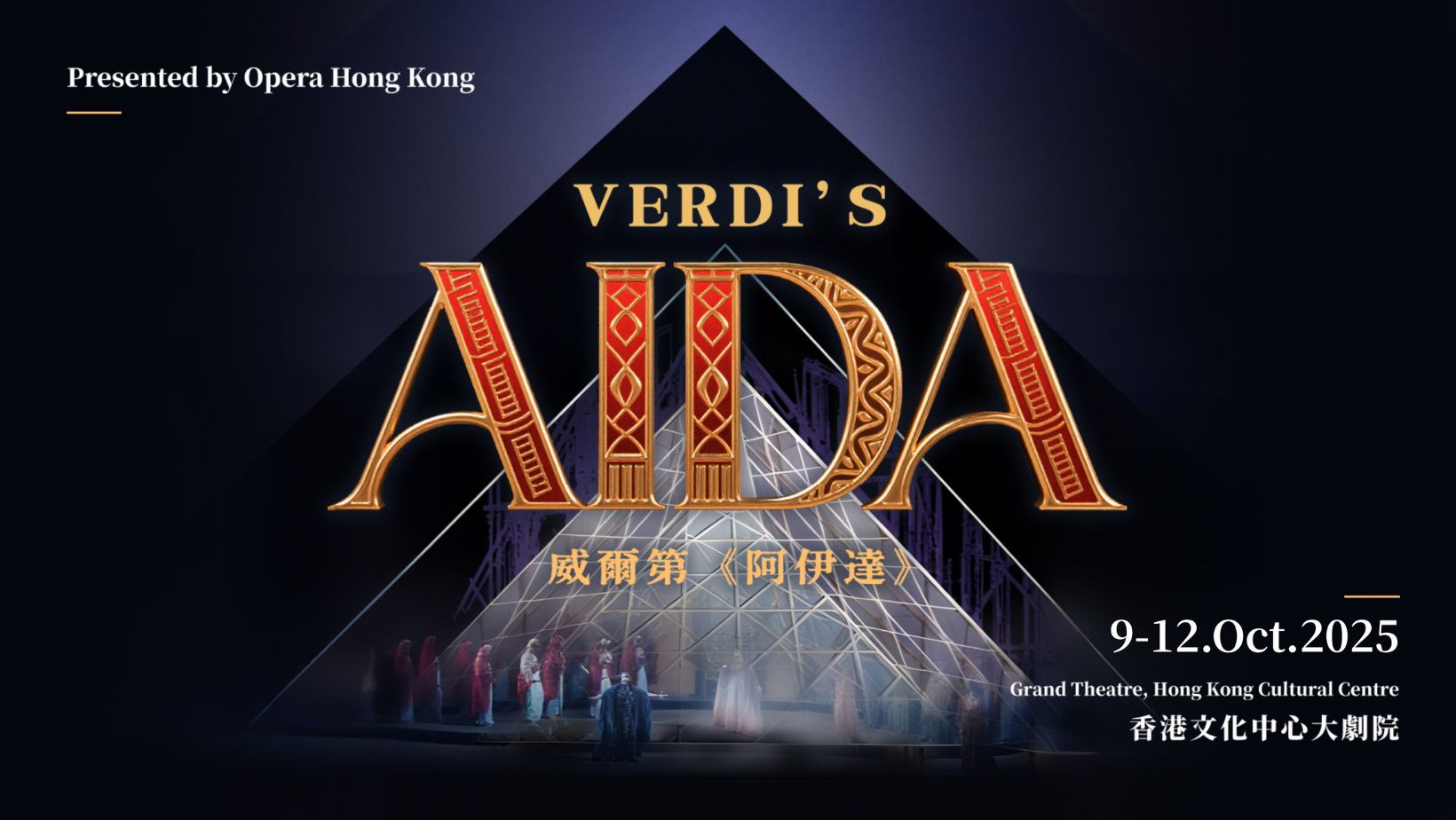Date: 9 – 12 October (Thursday to Sunday)
Time: 19:30 (9, 10, 11 October); 14:30 (11, 12 October)
Venue: Grand Theatre, Hong Kong Cultural Centre
Price: $1,280 / $1,080 / $880 / $680 / $480 / $280
Sung in Italian, with Chinese and English Surtitles
Click here to purchase your tickets
Please click here for more information
***
The Italian Cultural Institute Hong Kong is glad to support Giuseppe Verdi’s Aïda by Opera Hong Kong, an event which is a part of the celebration of the XXV Week of the Italian Language in the World and also of the Italian autumn festival ITALIA On Stage.
International talents will perform in the production including:
Maria Teresa Leva (Italy) / Iwona Sobotka (Poland) as Aïda
Ivan Gyngazov (Russia) / Marco Berti (Italy) as Radamès
Olesya Petrova (Russia)/ Nino Surguladze (Georgia) as Amneris
Marco Caria (Italy) / Burak Bilgili (Turkey) as Amonasro, King of Ethiopia
Abramo Rosalen (Italy)/ Paul Gay (France) as Ramfis, High Priest/ King of Egypt (Il Re)
During the five shows, local talents will perform alongside the international artists with Wesley Lam / Henry Ngan as Messenger, and Carol Lin / Christy Li as High Priestess.
Aïda, is about the conflict between duties to state, family and the heart. Although the music sets the opera in a far-away place, Verdi manages to include triumph, passion, pathos, anguish, ruthlessness, deception, bigotry and redemption in unforgettable arias, duets and choruses, all within a single work. As do all great works of art, it asks questions for which there are no answers.
The plot of is about the Ethiopian princess Aïda, captured and enslaved, is in love with Radamès, a noble Egyptian warrior, and he with her. Radamès opens the opera with one of all of opera’s biggest opening numbers, “Celeste Aïda” (Heavenly Aïda). Radamès has however also fatally caught the eye of the Pharaoh’s daughter Amneris.
The music of the overture evokes the exoticism of ancient Egypt. As the chords fade, Abyssinia is invading Egypt — with an army led by Aïda’s father, the Ethiopian King Amonasro. Radamès has been chosen to lead the Egyptian armies against them; Aïda finds herself caught between her love of Radamès and her country. She catches herself saying “Ritorna vincitor!” — “return victorious!” —“… vincitor del padre mio…”, she then rebukes herself. She has called for Radamès to defeat her own father in battle. This, indeed, is the theme that plays out throughout the opera: where does patriotism sit in the pantheon of virtues?





